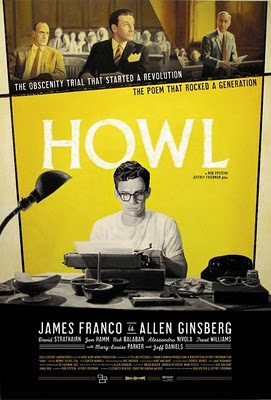
A pretty thought-provoking little essay by Lee Siegel in last week’s NY Times about the similarities between the Beat Generation and the Tea Party, which touches on insider-outsider dynamics, and the Christian religion’s inherent allure when it comes to “losers”. A few excerpts of which include (ht MS):
American dissent turns on a tradition of troublemaking, suspicion of elites and feelings of powerlessness, no matter where on the political spectrum dissent takes place.
The origin of the word “beat” has a connection to the Tea Partiers’ sense that they are being marginalized as the country is taken away from them. According to Ginsberg, to be “beat” most basically signified “exhausted, at the bottom of the world, looking up or out . . . rejected by society.”
It’s too bad that the movie “Howl” reduces the sociopolitical meaning of the Beats to the obscenity trial that took place in San Francisco in 1957, when Lawrence Ferlinghetti stood accused of printing and selling “Howl,” Ginsberg’s explosively profane long poem. Hollywood loves self-righteously to portray now-unchallenged liberal causes under siege, even though in this case the cause of free speech was vindicated when the presiding judge ruled that “Howl” was a work of “redeeming social importance” and that Ferlinghetti was innocent. What the movie should have spun out into its own subplot was the fact — never mentioned in the film — that the judge, W. J. Clayton Horn, was a conservative jurist locally renowned for his Sunday-school Bible classes. Horn might well have been as much an outsider in San Francisco’s sophisticated social circles as Ferlinghetti and Ginsberg were in the eyes of the law. It takes an outsider to know an outsider. Or perhaps Horn had a glimpse of the future. The eventual assimilation of Beat hedonism ensured that by the end of the millennium, white middle-class Christians like him would themselves be marginalized — at least by the dominant culture — as the “silent majority.”
Then again, the Beats were as much at odds with the liberals of their time as the Tea Partiers are with the liberals of today. The same liberal air of elite-seeming abstraction that provokes the Tea Partiers drove the Beats around the bend. For the Beats, liberals were part of the power structure: they spoke loftily about conscience and social obligation yet lived comfortably within the plush boundaries of universities, law firms and financial institutions. Worst of all, they accepted the government’s role in organizing their lives. Indeed, in the secret file the F.B.I. kept on him, Ginsberg was described by J. Edgar Hoover himself as having a dangerous “antipathy” toward government. Against the liberals’ seeming complicity with the status quo, the Beats took to the road in quest of what Jack Kerouac (quoting Oswald Spengler) called a “second religiousness” within Western civilization. With their noisy commitment to their churches, the Tea Partiers also seem to want their religious communities to take the place of government in their lives.
Postscript: Lest you think we’re even remotely suggesting that Glenn Beck and Jack Kerouac have anything in common substance-wise, check out Eric Landry’s superb post on the White Horse Inn blog about “Glenn Beck’s Jesus”. And then read any of our numerous posts on the misunderstood genius of Kerouac.
Post-postscript: While you’re over exploring the many goodies on offer at the White Horse Inn, be sure to check out the interview that yours truly and Todd Brewer did recently about The Gospel According to Pixar!

COMMENTS
2 responses to “The Beats Having Their Tea (And Drinking It Too)?”
Leave a Reply














I was worried til I read your postscript!
🙂
I still have to put in my 2 cents–the NY Times piece was beyond superficial and reductionist.
I thought the NT Times piece was absolutely fascinating.